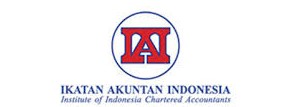Pengaruh Risiko Environmental, Social, and Governance (ESG) terhadap Enterprise Risk Management (ERM) dengan Kepemilikan Keluarga sebagai Variabel Moderasi
Abstract
The growing environmental issues that threaten Indonesia's economy present new challenges in maintaining corporate stability. The dynamics of these risks affect corporate performance, with Enterprise Risk Management (ERM) being one of the indicators affected. This study aims to evaluate the impact of Environmental, Social, and Governance (ESG) risks on ERM, with family ownership as a moderating variable in companies listed on the Indonesia Stock Exchange in 2024. This is a quantitative study. The study population includes companies listed on the Indonesia Stock Exchange. Using purposive sampling and secondary data sourced from IDX and Morningstar Sustainalytics, accessed via www.idx.co.id. The required data includes ESG risk scores and ERM-related disclosures. Hypothesis testing was conducted using moderation regression analysis with IBM SPSS 26t. The results indicate that ESG risk does not have a significant direct effect on ERM. However, family ownership significantly moderates the relationship between ESG risk and ERM.
References
Amore, M. D., Pelucco, V., & Quarato, F. (2022). Family ownership during the Covid-19 pandemic. Journal of Banking and Finance, 135, 106385. https://doi.org/10.1016/j.jbankfin.2021.106385
Arora, P., & Dharwadkar, R. (2011). Corporate governance and corporate social responsibility (CSR): The moderating roles of attainment discrepancy and organization slack. Corporate Governance: An International Review, 19(2), 136–152. https://doi.org/10.1111/j.1467-8683.2010.00843.x
Aydoğmuş, M., Gülay, G., & Ergun, K. (2022). Impact of ESG performance on firm value and profitability. Borsa Istanbul Review, 22, S119–S127. https://doi.org/10.1016/j.bir.2022.11.006
Block, J. H., & Wagner, M. (2014). The effect of family ownership on different dimensions of corporate social responsibility: Evidence from large US firms. Business Strategy and the Environment, 23(7), 475–492. https://doi.org/10.1002/bse.1798
Ca, H., Lewin, S., Paulsen, E., Ciapponi, A., Opiyo, N., Pantoja, T., Rada, G., Cs, W., Bastías, G., S, G. M., Ci, O., Peñaloza, B., & Ad, O. (2017). /CT/CochraneCMS/TexRendering5/723.dvi. 9, 1–95. https://doi.org/10.1002/14651858.CD011085.pub2.www.cochranelibrary.com
Cohen, G. (2023). The impact of ESG risks on corporate value. Review of Quantitative Finance and Accounting, 60(4), 1451–1468. https://doi.org/10.1007/s11156-023-01135-6
Damayanti, A. I., & Venusita, L. (2022). Pengaruh Pengungkapan Enterprise Risk Management (ERM) terhadap Kinerja Perusahaan pada Perusahaan Manufaktur yang Terdaftar di Bursa Efek Indonesia (BEI). Jurnal Akuntansi AKUNESA, 10(3), 43–54. https://doi.org/10.26740/akunesa.v10n3.p43-54
Firmansyah, A., Kharisma, A. N., & Amalia, R. (2023). Apakah Risiko ESG Berkaitan dengan Risiko Perusahaan? ABIS: Accounting and Business Information Systems Journal, 11(4). https://doi.org/10.22146/abis.v11i4.87641
Freeman, R. E., Dmytriyev, S. D., & Phillips, R. A. (2021). Stakeholder Theory and the Resource-Based View of the Firm. Journal of Management, 47(7), 1757–1770. https://doi.org/10.1177/0149206321993576
Hoyt, R. E., & Liebenberg, A. P. (2011). The Value of Enterprise Risk Management. Journal of Risk and Insurance, 78(4), 795–822. https://doi.org/10.1111/j.1539- 6975.2011.01413.x
Iswajuni, I., Manasikana, A., & Soetedjo, S. (2018). The effect of enterprise risk management (ERM) on firm value in manufacturing companies listed on Indonesian Stock Exchange year 2010-2013. Asian Journal of Accounting Research, 3(2), 224–235. https://doi.org/10.1108/AJAR-06-2018-0006
Jabar, M. A., Kufepaksi, M., & Dalimunthe, N. P. (2024). Pengaruh Manajemen Keluarga, Struktur Kepemilikan Keluarga, Struktur Modal dan Invesment Opportunity Set (IOS) Terhadap Kinerja Perusahaan (Studi pada Perusahaan Manufaktur yang Terdaftar di Bursa Efek Indonesia Periode 2017-2022). Journal on Education, 6(4), 18529–18543. https://doi.org/10.31004/joe.v6i4.5740
Jia, J., Li, Z., & Munro, L. (2019). Risk management committee and risk management disclosure: evidence from Australia. Pacific Accounting Review, 31(3), 438–461. https://doi.org/10.1108/PAR-11-2018-0097
Kakar, S. K., Ali, J., Bilal, M., Tahira, Y., Tahir, M., Bahadar, N., Bukhari, H., Ullah, S., & Aziz, T. (2021). Corporate Governance, Risk Management, and Bank Performance: Does Type of Ownership Matter? Journal of Financial Risk Management, 10(03), 342–
https://doi.org/10.4236/jfrm.2021.103020
Kapil, S., & Rawal, V. (2023). Sustainable investment and environmental, social, and governance investing: A bibliometric and systematic literature review. Business Ethics, the Environment and Responsibility, 32(4), 1429–1451. https://doi.org/10.1111/beer.12588
Knief, U., & Forstmeier, W. (2021). Violating the normality assumption may be the lesser of two evils. Behavior Research Methods, 53(6), 2576–2590. https://doi.org/10.3758/s13428-021-01587-5
McShane, M. K., Nair, A., & Rustambekov, E. (2011). Does enterprise risk management increase firm value? Journal of Accounting, Auditing and Finance, 26(4), 641–658. https://doi.org/10.1177/0148558X11409160
Mefteh-Wali, S., & Hussain, N. (2024). Do foreign currency risk management strategies increase value in family business? International Review of Financial Analysis, 93(July 2023), 103151. https://doi.org/10.1016/j.irfa.2024.103151
Mei, C. (2023). Pengaruh Kepemilikan Keluarga Dalam Audit Wanita Terhadap Manajemen Laba. Jurnal Ekonomi-Manajemen-Akuntansi, 19(1976), 97–110.
Nugroho, D., Seputro, D., Maghfiroh, R. D., & Kurniasari, I. (2024). Pengaruh Manajemen Risiko Berbasis ESG terhadap Nilai Pemegang Saham dan Persepsi Pasar : Tinjauan Pustaka Sistematis. 4, 79–89.
Przychodzen, J., Gómez-Bezares, F., Przychodzen, W., & Larreina, M. (2016). ESG issues among fund managers-factors and motives. Sustainability (Switzerland), 8(10), 1–19. https://doi.org/10.3390/su8101078
Purwitasari, D., Sumardi, & Larasati, M. (2023). Pengaruh Tingkat Risiko Environmental Social Governance (ESG) dan Leverage terhadap Kinerja Perusahaan Pada Indeks IDXESGL Tahun 2020-2022. Jurnal Informatika Ekonomi Bisnis, 5, 522–529. https://doi.org/10.37034/infeb.v5i2.255
Putra, & Widjaya, I. E. (2020). Peran Family Ownership Dalam Memoderasi Pengaruh Kompensasi Manajemen Terhadap Tax Avoidance. 23–38.
Sharma, S. (2023). Does ESG risk management ensure better risk management? Evidence from India. Procedia Computer Science, 221, 912–919. https://doi.org/10.1016/j.procs.2023.08.068
Yunus, Y. A., & Nanda, S. (2024). Exploring Sustainable Finance: A Qualitative Inquiry into Responsible Investment and ESG Risk Evaluation. Golden Ratio of Finance Management, 4(1), 01–13. https://doi.org/10.52970/grfm.v4i1.429







.png)
.png)
